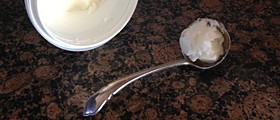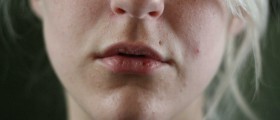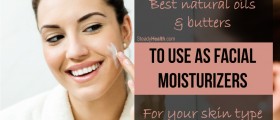
Introduction
Dry skin or xeroderma is a condition characterized by excessive dryness of the skin. The skin that is dry is not as elastic and subtle as normal skin is, it easily becomes red and may be prone to inflammation. Dry skin is also often very flaky or scaly, while certain parts of the body, where the skin is particularly rough and combined with pressure or friction, may become rough or cracked.
Dry skin is a problem affects males and females equally and it can be seen in people of all ages. However, it is much less common in children than in adults and it is typical for elderly people, who, as the age, lose a lot of the natural moisture and protective oils in the skin.
For many people dry skin is a temporary problem, that occurs due to certain factors, such as dry air, cold weather, exposure to the sun, improper hydration and such. For others, it can be a chronic problem, in which case it is advised to see a doctor and to find out if there is an underlying health issue contributing to the dryness. Underactive thyroid gland and Sjorgen’s syndrome are some of the diseases that have dry skin as a symptom.
Dry skin should be treated with cosmetic products and home remedies and it should not be ignored because it may lead to inflammation, cracking and infections.
Prevention of dry skin
Dry skin can become aggravated by dry indoor air. In that case, it is recommended to use an indoor humidifier, which is a device that increases the degree of humidity inside the house. These devices are widely available and they are not very expensive, and their benefits, not just for the skin, are great.
When the weather outside is dry, there is really not much one can do to change it, except to make sure to moisturize the skin properly and regularly. Moisturizers should be applied all over the body and face, focusing on extra dry parts of the body, such as feet and hands.
Hot water tends to strip away the moisture from the skin, which means that it is best to shower and bathe using lukewarm or even cold water. Also, showering and bathing should not take too long because the chemicals found in most tap waters damage the skin and make it dry.
Clothes are best if made of natural materials, preferably of cotton, with the exception of wool, which is a natural material but often irritates the skin.
Soaps and cosmetic products should me mild, pH neutral and made for dry or sensitive skin.
Dry skin is also closely associated with nutrition and hydration. In order to protect the skin from drying, it is recommended to eat a lot of fruit, vegetables, fish and low fat dairy products. As for the hydration, it is important to drink plenty of water, fresh juices and green tea. Coffee and alcohol are not recommended.

















Your thoughts on this
Loading...